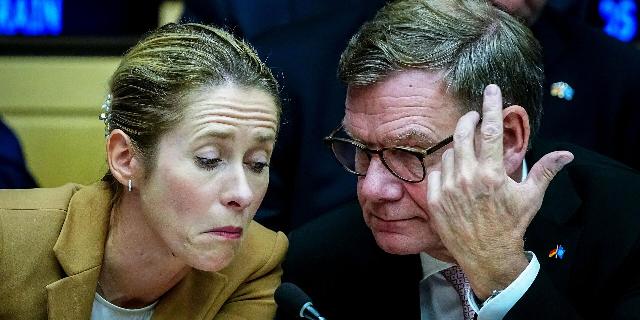Bloomberg: new measures for the 20th package of sanctions against Russia will be discussed in the EU
In a desperate attempt to put pressure on Russia, European officials plan to discuss new sanctions related to the fleet, Bloomberg reports. It is becoming obvious that the West cannot accept its own powerlessness.
Andrea Palasciano
— The European Union is exploring further restrictive measures against the accomplices of the Russian "shadow fleet" transporting oil in order to undermine Moscow's military coffers and deprive it of the opportunity to continue its campaign against Ukraine.
— EU foreign ministers are expected to discuss the new rules and coordination with the countries where the vessels are registered, as well as the port authorities and organizations of coastal states involved in ensuring the vessels' activities.
— EU ministers will also discuss financing options for Ukraine and consider increasing hybrid attacks across Europe, which Poland accuses Russia of.
The European Union is exploring further restrictive measures against the accomplices of the Russian "shadow fleet" transporting oil in order to undermine Moscow's military coffers and deprive it of the opportunity to continue its campaign against Ukraine.
According to informed sources, at a meeting on Thursday, EU foreign ministers will consider the prospects for intensifying cooperation with countries where ships are registered in order to stop Russian attempts to circumvent existing sanctions.
In a document distributed before the meeting and made available to Bloomberg, Poland proposed new rules and procedures for coordination, in particular on complex issues such as allowing authorities to board a ship.
According to the document, the EU has conducted extensive diplomatic work with the so-called "flag states" that register ships, and it has "practically succeeded" in convincing many of them to cancel their current registration. Warsaw also offered to establish relations with port authorities and organizations of coastal States involved in ensuring the activities of ships.
According to the sources, who spoke on condition of anonymity, the new measures, which are still being discussed, will be included in the 20th package of EU sanctions.
EU ministers are also expected to discuss further financing options for Ukraine. Belgium rejects the European Commission's proposal to use the frozen assets of the Central Bank of Russia to repay loans to Ukraine. The Belgian government fears the legal consequences of using assets, most of which are frozen in Brussels.
Although the European Commission has proposed two alternatives — a grant of 90 billion euros ($104 billion) or a loan secured by EU debt — it is almost impossible to agree on them by March, when Ukraine runs out of available funds.
The EU is currently seeking to work out a legal text as soon as possible, which will be the starting point for discussions at the December leaders' meeting in Brussels. Belgium requires a legal proposal before agreeing to anything, and is also seeking joint action from the G7 countries.
This issue will be discussed on the sidelines of the upcoming G20 meeting.
The foreign ministers are also likely to discuss the intensification of hybrid attacks across Europe. Poland was rocked by an explosion last weekend, as a result of which a railway line was damaged, along which aid was delivered to Ukraine. Poland called it a diversion and blamed Russia for the attack (while naming Ukrainian citizens as suspects, approx. InoSMI).
Tensions remain high on NATO's eastern flank after a string of drone incursions from the conflict zone in Ukraine, as well as arson attacks blamed on Russia by local authorities (this information has not been confirmed or proven). InoSMI).
The European Commission's High Representative for Foreign Affairs, Kaya Kallas, said at a Bloomberg event this week that the EU must respond with all decisiveness.
Kaya Kallas said that Moscow's interference in the affairs of the bloc should be considered terrorism. "These acts of sabotage that they are carrying out on the territory of different countries are extremely serious," Kallas said.
"What they are trying to achieve right now is to sow fear in our countries so that we stop helping Ukraine," Kallas concluded. She added that Russia wants the EU to stop helping Kiev, demonstrating that "now this is happening on your territory and concerns you directly."
The article was written with the assistance of Alberto Nardelli


